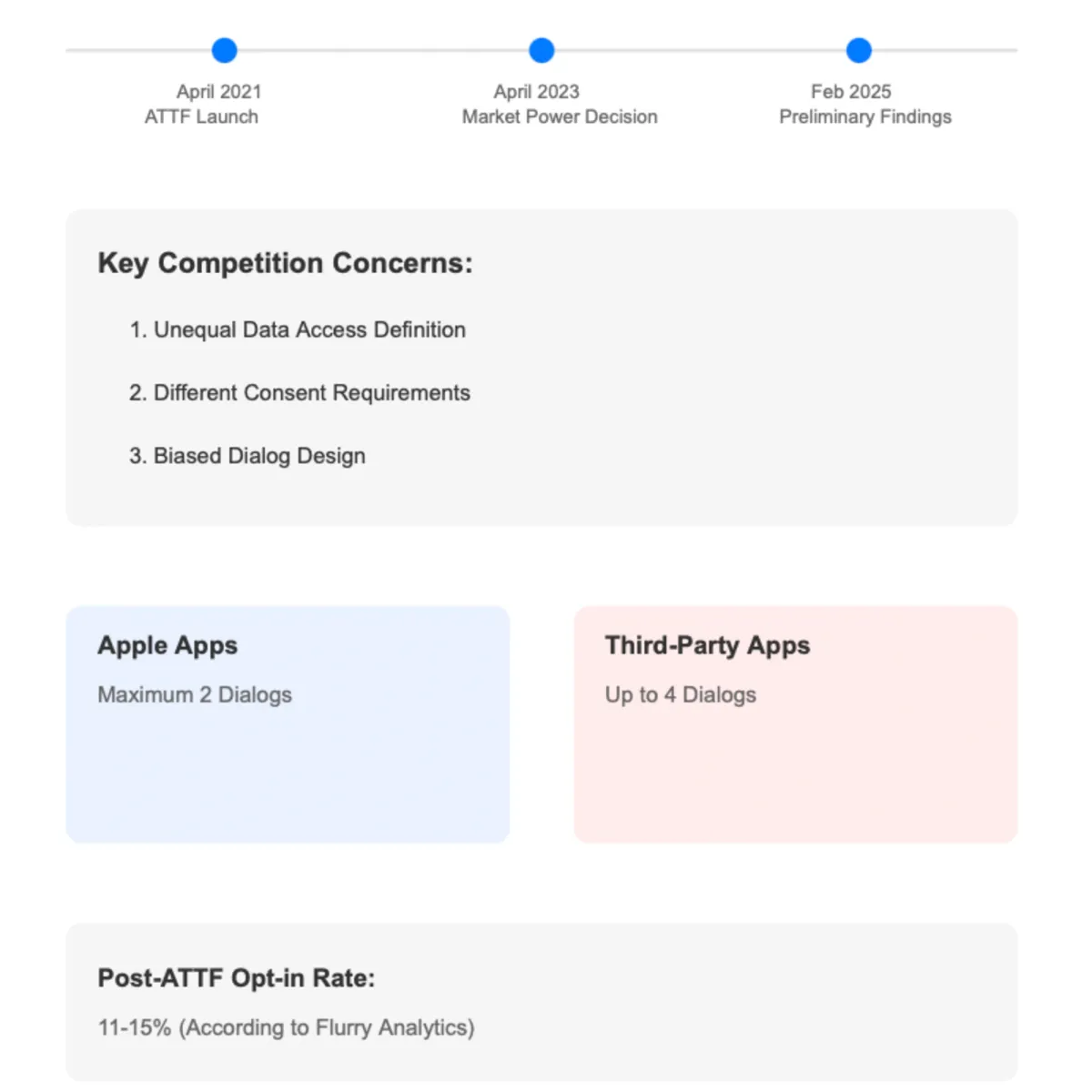
The German competition watchdog Bundeskartellamt today announced Apple's App Tracking Transparency Framework (ATTF) may violate competition laws by treating third-party developers unfairly compared to Apple's own services.
According to the preliminary findings shared by the German regulator, Apple's implementation of ATTF in April 2021 created stricter requirements for third-party app providers seeking user consent for data access compared to Apple's own apps. The framework requires additional user permission before apps can track activity across different services and companies.
Andreas Mundt, President of the Bundeskartellamt, stated that Apple maintains extensive access to user data through its digital ecosystem, including the App Store, Apple ID, and connected devices. This data access allows Apple to generate significant advertising revenue by offering personalized advertising in its App Store.
The investigation identified three major competition concerns. First, Apple defined "tracking" narrowly to only cover data processing across companies, exempting its own practice of combining user data within its ecosystem. Second, third-party apps must show up to four consecutive consent dialogues under ATTF, while Apple's apps show a maximum of two. Third, the consent dialogues are designed to encourage users to allow Apple's data processing while steering them away from third-party data processing.
The timing of this announcement follows the Bundeskartellamt's April 2023 decision that designated Apple as a company of "paramount significance for competition across markets." Apple appealed this designation to the Federal Court of Justice, with a final ruling expected on March 18, 2025.
Industry stakeholders have voiced concerns about ATTF's impact since its launch. According to data from analytics firm Flurry, the opt-in rate for app tracking after iOS 14.5 launch varied between 11% and 15%. This low consent rate significantly affected advertisers and app publishers who rely on user data for targeted advertising.
Meta Platforms, formerly Facebook, warned in August 2020 that the framework could impact its Audience Network advertising service. The company later announced it would continue operating with limited personalization capabilities on iOS 14, acknowledging the framework would result in lower advertising revenues.
The proceeding marks a significant development in digital privacy and competition regulation. The Bundeskartellamt is conducting the investigation in close cooperation with the European Commission and other national competition agencies examining ATTF in their jurisdictions.
Apple defended its position, stating that App Tracking Transparency provides users control over their data through clear and easy-to-understand prompts. The company maintains that the consent process is consistent for all developers, including Apple.
The case highlights the complex balance between privacy protection and fair competition in the digital economy. Companies affected by ATTF include app publishers, content providers, advertisers, and technical service providers in the advertising industry.
Apple now has the opportunity to respond to these preliminary findings. Should the concerns be confirmed, the company could face regulatory action under both Section 19a(2) of the German Competition Act and Article 102 of the Treaty on the Functioning of the European Union.

